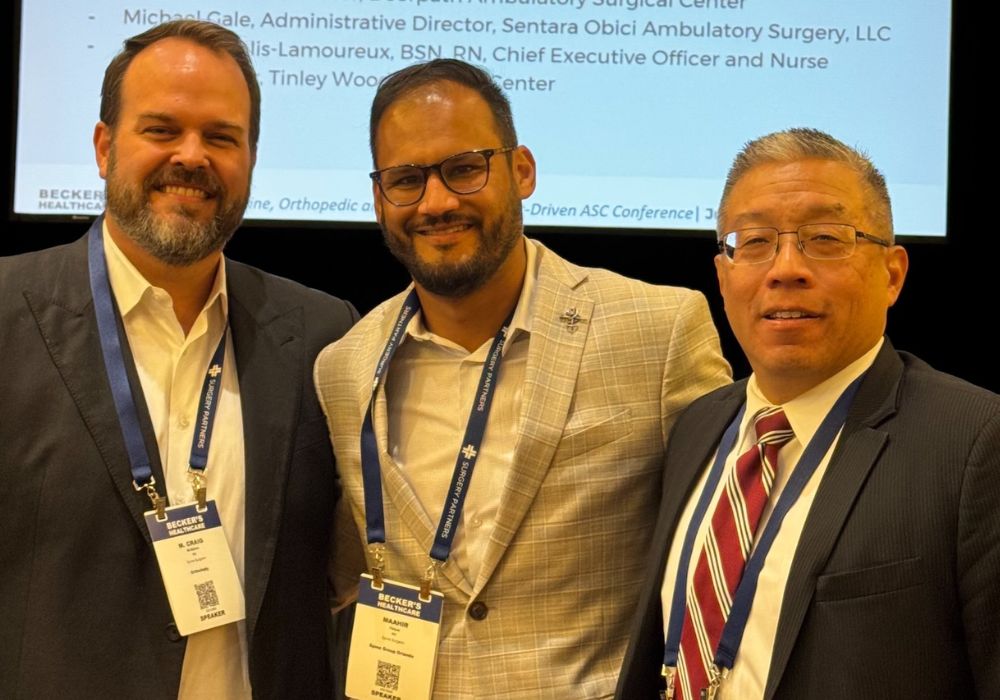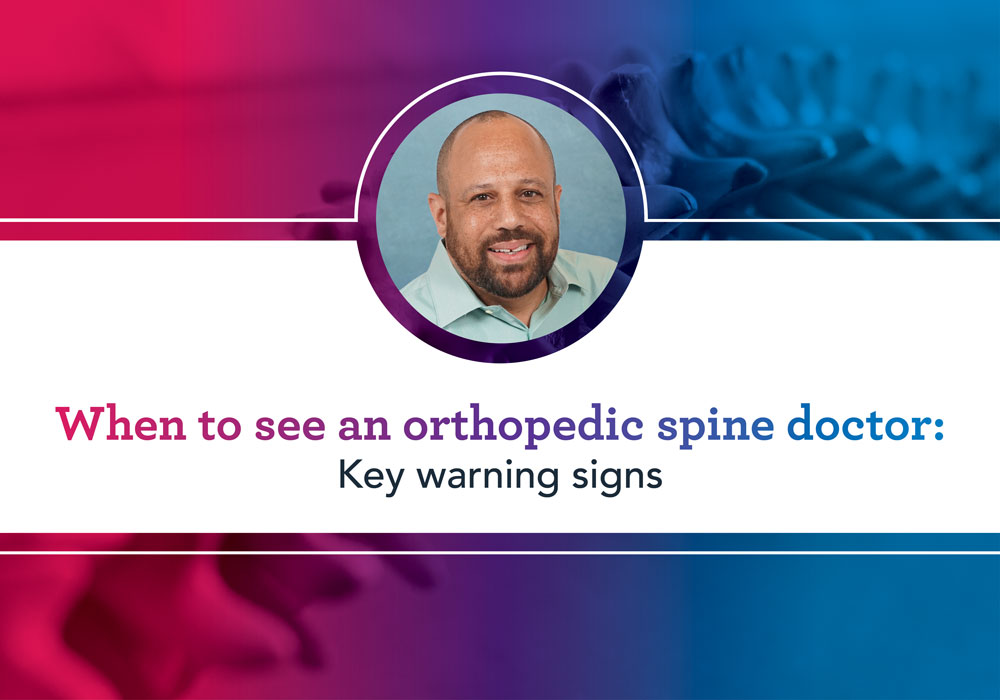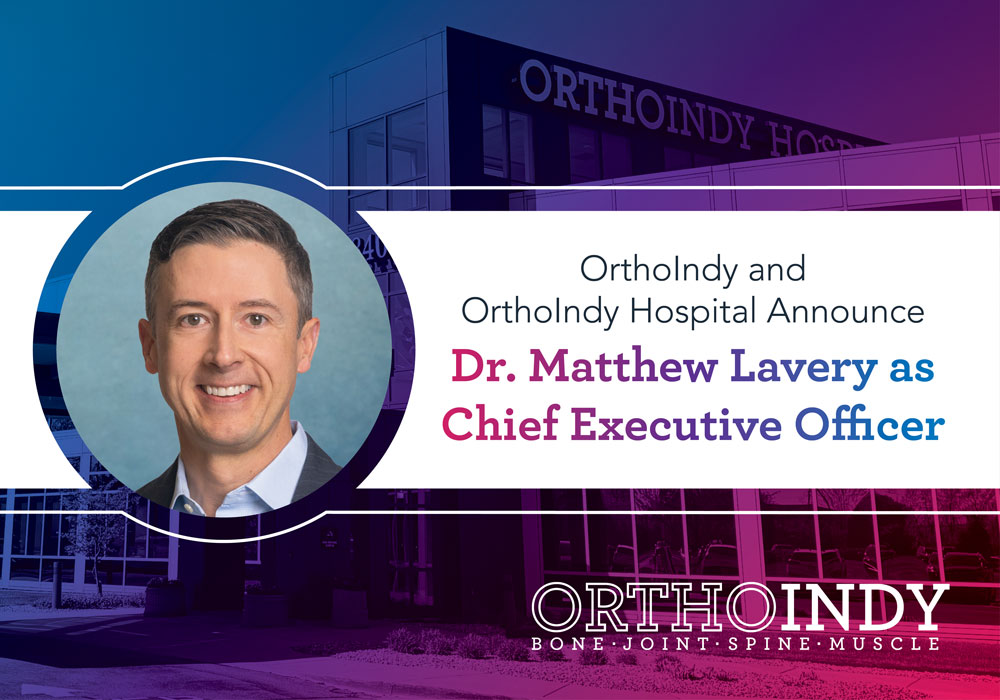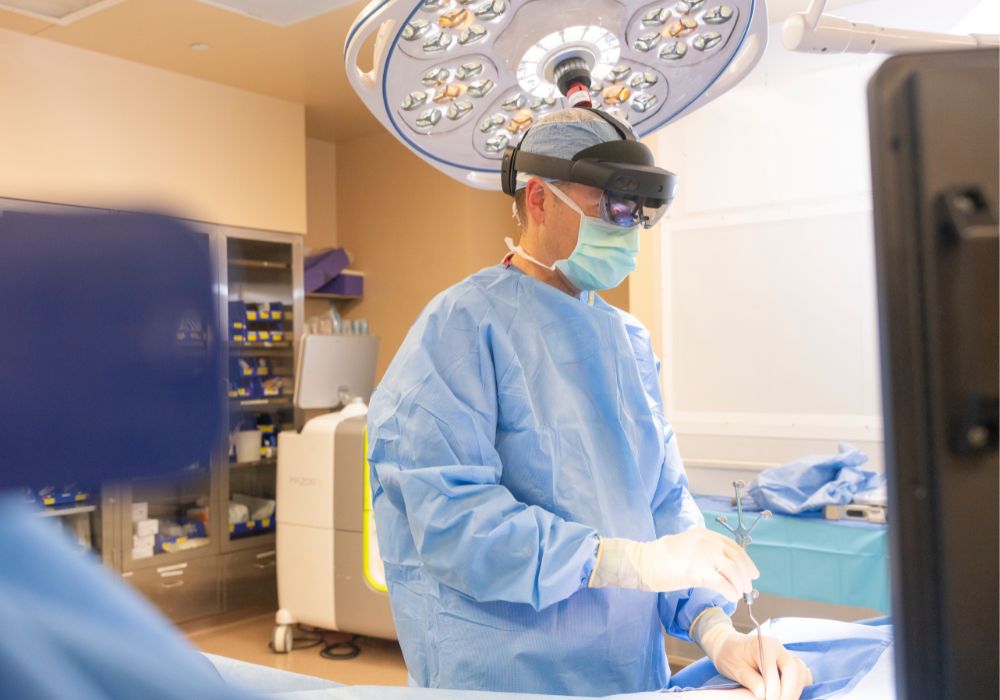When you’re living with spine pain, you want answers and options that lead to faster relief and lasting results. At OrthoIndy, one of the largest physician-owned orthopedic practices, innovation isn’t a buzzword; it’s how we deliver better outcomes for every patient we treat.
Dr. M. Craig McMains, an OrthoIndy fellowship-trained spine surgeon, is helping to lead the charge. He and his colleagues are focused on emerging technologies that are shaping the next generation of spine care, including:
- AI-assisted surgical planning
- Minimally invasive and endoscopic spine surgery
- Advanced biologics for tissue healing
- Data-driven, personalized care plans
“We’re not just using these technologies; we’re helping to refine them,” says Dr. McMains. “And because OrthoIndy is physician-owned, we can adopt innovations quickly without the delays that often come with hospital systems.”
What role does artificial intelligence play in spine care?
Artificial intelligence (AI) is more than a futuristic concept. It’s already enhancing how our teams plan surgery, guide treatment and support recovery.
“AI is the multiplier technology,” Dr. McMains explains. “It makes everything else better – smarter robotics, more predictive navigation and implants tailored to each patient’s anatomy. Even recovery is improving with AI tools that track progress and help identify issues early.”
How are new technologies vetted?
New technology only matters if it improves your experience. That’s why Dr. McMains uses a four-part test before integrating anything into his practice:
- Does it improve outcomes? He looks for tools that reduce pain, speed up recovery and lead to better long-term results.
- Will it work with current systems? The best innovations fit seamlessly into existing workflows.
- Is the learning curve worth it? Some procedures like endoscopic spine surgery require significant training but deliver substantial patient benefits.
- Will it continue to improve with AI? Future-ready tech is designed to evolve and get better over time.
How does research play a role?
Much of this progress is made possible through the Orthopaedic Research Foundation, a nonprofit that supports clinical studies, data analysis and technology evaluation led by OrthoIndy physicians. Dr. McMains and his colleagues actively participate in research trials that help determine which innovations truly improve patient care and which ones don’t.
“Research is what drives smart innovation,” says Dr. McMains. “We’re not just guessing what works. We’re measuring, testing and continuously improving with data from real patients.”
What does this mean for you, the patient?
You don’t need to understand every surgical tool to benefit from it. What matters is choosing a care team committed to staying ahead – using the latest, most effective methods with your outcomes in mind.
“At OrthoIndy, our independence allows us to lead,” says Dr. McMains. “We were early adopters of AI planning tools, and that experience is already making a difference in how we care for patients, from more accurate surgical planning to smoother clinic operations.”
What does the future hold in store?
Rather than focusing on a single device, OrthoIndy is building a connected ecosystem where AI supports every stage of your care. From imaging to recovery, our team is leveraging data, experience and innovation to give you the best possible outcome.
If you’re struggling with back or neck pain and want to explore your options, schedule an appointment with an OrthoIndy spine specialist today to learn how our AI-enhanced approach can help solve your specific spine condition. Our team will start with non-surgical options and only discuss surgery if that’s what is needed.





